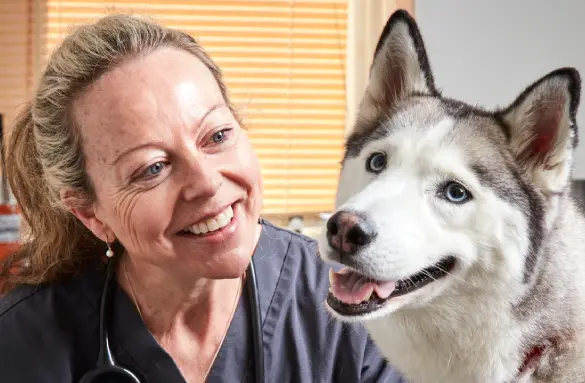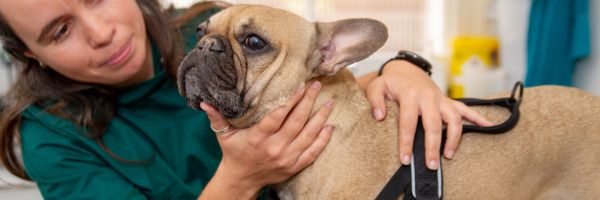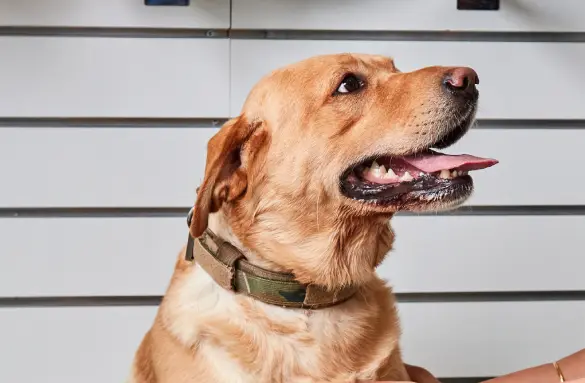At Richmond Hill Veterinary Practice, we understand how important your dog’s dental health is.
Our expert team offers comprehensive dog dental surgery services to treat a range of oral health issues.
Whether your dog needs a simple tooth extraction or advanced procedures, we are here to ensure comfort and recovery for pets in Richmond and the surrounding areas, including Sheen, Hounslow, Brentford, Whitton, and Twickenham.

What’s Involved In Dog Dental Surgery?
Dog dental surgery addresses various oral health problems such as gum disease (gingivitis), periodontal disease, loose teeth and infections, as well as damaged teeth.
Before the procedure:
- We’ll ask you to fast your dog overnight, so no breakfast the morning of the dental surgery, but make sure they have access to water – an empty stomach limits the risks of regurgitation under anaesthetic.
- For dental surgery on older dogs, we may also ask to carry out a blood test to check for any other underlying issues before the procedure.
Once you’ve brought your dog into our practice, we’ll start with a thorough dental examination of your dog’s mouth and throat to identify the issue and plan the treatment.
Sometimes we use dental radiography (x-rays) to assess the condition of teeth below the gumline and detect hidden problems. This is not always routine and depends on the case.
Extraction may be necessary for severely damaged or infected dog teeth, to prevent further complications. Simple tooth extractions usually take 30–60 minutes, while more involved procedures like root canals or multiple extractions may take a few hours.
The aim is to restore your dog’s dental health and enhance their overall well-being.
How Much Is Dog Dental Surgery?
The cost of dog dental surgery varies depending on the type of procedure, the number of teeth involved, and any additional treatments required.

Reasons Why Dog Dental Surgery May Be Necessary
If your dog shows signs like tooth damage, loose teeth, bleeding gums, pain when eating, persistent bad breath, excessive drooling, loss of appetite, or nasal discharge.
Common reasons for surgery include broken or fractured teeth, retained puppy teeth causing crowding, tooth resorption, impacted teeth, abscessed or infected teeth, and misaligned teeth.
If you notice any of these issues, it’s important to seek veterinary care to prevent further complications.
Caring For Dogs After Dental Surgery
Recovery from dental surgery typically takes 7-10 days, but varies by procedure.
Once home, offer soft food and ensure they have access to plenty of water.
You’ll be given a personalised recovery timeline, and aftercare guidelines on pain management and antibiotics.
Signs To Look Out For After Dental Surgery?
- Persistent crying that doesn’t stop after a few days
- Refusal to eat or drink 24 hours or other concerns arise
- Vomiting or wheezing
- Blood in stool
If you notice any of these signs a few days after your dog’s procedure, get in touch with your vet.

Look after your dog’s dental health.
Our canine dental team will assess your dog’s oral health and provide expert guidance and treatment.



